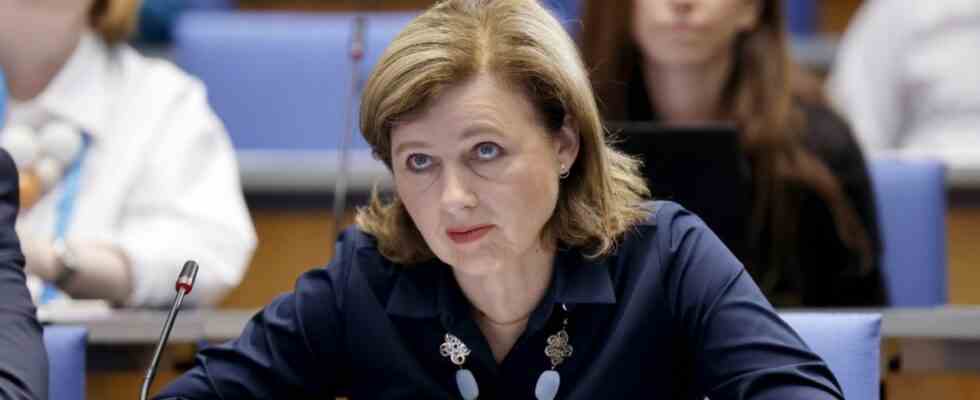Yes, says Věra Jourová, she follows the headlines about ARD very closely. But in no way does their law to safeguard media freedom in Europe (European Media Freedom Act) aim at German abuses. From her point of view, the processing of the Schlesinger affair is an example of how well the public service system in Germany works.
And yes again, says the Vice-President of the European Commission, she has heard that German publishers are afraid of being ousted by the EU. At least that’s what it sounded like in a statement by the federal association BDZV. “A misunderstanding,” says Jourová. Rather, the EU wants to help them to maintain their independence and that of their workforce.
Germany, that is to say, is not the focus of the law that the commissioner presented in Brussels on Friday. Rather, it is probably like this: Without German help, Věra Jourová will not be able to enforce the law. The Czech expects a “big fight” in the negotiations with the parliament and above all the council of the 27 member states. There is likely to be resistance above all from countries that she named in her press conference: Hungary and Poland, but also Slovenia. But there is skepticism elsewhere too.
Public media should be sustainably financed and not turned into government propaganda tools. States must not use advertising money to favor acceptable media or make licenses dependent on the content of reporting. The public must be informed in detail about media ownership. Editorial offices and individual editors must not be spied on by the state, sources must be protected. These are some of the guidelines contained in the bill. A body called the “European Board for Media Services”, which is independent of the EU Commission, is to be set up for implementation and monitoring, staffed by experts from the member countries.
Ultimately, the EU could impose millions in fines
With the law, the EU Commission would expand its powers in media regulation considerably. It would be given the opportunity to take action against the member states with its usual range of instruments – from “dialogue” to infringement proceedings – in the end there could be fines running into the millions. Jourová is specifically responsible for “values and transparency” in the commission, compiles the annual rule of law reports and has indicated that the conditions in Hungary in particular are the reason for the law. There, Viktor Orbán tailored a media landscape to suit his taste.
The question now is whether the grievances in some countries justify taking action against all 27 member states with one law. There are also critical voices in the European Parliament. “Instead of more European press supervision, more European press funding would make more sense,” said Moritz Körner, the FDP’s domestic policy spokesman. Petra Kammerevert, media and cultural policy spokeswoman for the European SPD, warned against encroaching on the competences of the member states. She also questioned whether the new supervisory body could really be independent of the EU Commission. Sabine Verheyen (CDU), Chairwoman of the Committee on Culture and Education in the European Parliament, expressed approval. She warned that, in addition to protecting editorial independence, “more convergence of the national regulatory authorities” is needed.
Věra Jourová knows the tricky terrain she is treading with this law. She said on Friday that the draft was neither “a nuclear bomb” nor “purely cosmetic”, but appropriate and pragmatic. Media freedom, a pillar of European democracy, is in danger. She therefore wants to get her project through the mills of Brussels legislation as quickly as possible.

